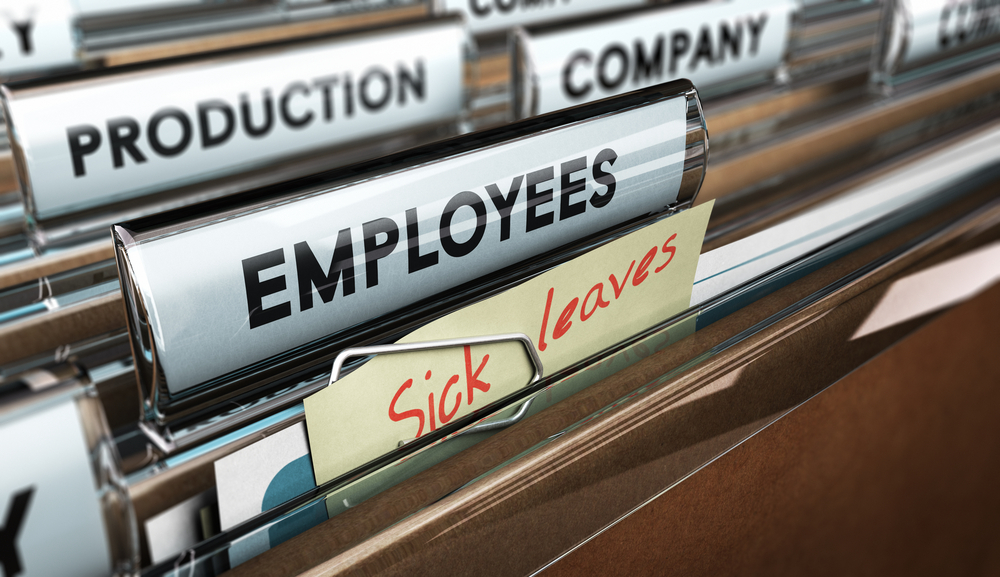Countries with the Best Sick Leave
Updated 21st January 2025 | 5 min read Published 23rd June 2020

In the US, there is no federal law that says employees are entitled to paid sick leave. Throughout the coronavirus pandemic this has been a considerable source of controversy, as there have been many cases of employees being forced to choose between isolating and continuing to work while they exhibit symptoms. While there is no nationwide rule, some states do offer paid sick leave, and indeed have changed their policies since COVID-19 started spreading. We take a closer look at sick leave policies in the US and across the wider world.
US Employee Benefits Compared to Other Countries
It’s widely known that the US has a significantly different stance when it comes to employment benefits, to many other countries. Not only relating to sickness, but also vacation and parental leave benefits are also considerably lacking in comparison to other countries.
While there are no federal law requirements pertaining to paid sick leave, companies that are subject to the Family and Medical Leave Act (FMLA) must provide unpaid leave. This Act also dictates that relevant employees are entitled to parental leave. Only certain employees and employers are covered by this act.
US Sick Leave Policies by State
There is different employment legislation in each state, with some being a lot more generous than others. When it comes to sick leave, there are currently 12 states, plus Washington DC and more than 30 localities that require it. The way the policies work in each area differ. States offering paid sick leave are:
- Arizona – one hour of sick leave for every 30 hours worked, with a maximum of 40 hours of sick leave annually.
- California – one hour of sick leave for every 30 hours worked. This can be capped by employers at six days per year.
- Connecticut – one hour of sick leave for every 40 hours worked, with a maximum of 40 hours of sick leave annually
- D.C. – depending on the size of a business, sick days are one hour of leave for every 30, 43 or 87 hours worked. Days are capped at seven, five, or three days per year.
- Maryland – one hour of sick leave for every 30 hours worked, with a maximum of 40 hours of sick leave annually.
- Massachusetts – one hour of sick leave for every 30 hours worked, with a maximum of 40 hours of sick leave annually.
- Michigan – one hour of sick leave for every 35 hours worked, with a maximum of 40 hours of sick leave annually.
- Nevada – approximately one hour of sick leave for every 52 hours worked. Hours of sick leave per year can be capped at 40, by employers.
- New Jersey – one hour of sick leave for every 30 hours worked, with a maximum of 40 hours of sick leave annually.
- Oregon – one hour of sick leave for every 30 hours worked for businesses with more than ten employees, and one hour of unpaid sick leave for every 30 hours worked for businesses with fewer than ten employees.
- Rhode Island – one hour of sick leave for every 35 hours worked, with a maximum of 40 hours of sick leave annually.
- Vermont– one hour of sick leave for every 52 hours worked. Hours of sick leave in one year can be capped at 40 by employers.
- Washington – one hour of sick leave for every 40 hours worked. Employees can also carry over up to 40 hours of unused sick leave into the following year.
The US is home to many unique employment laws that differ by state. Find out more about HR and payroll in the US.
How many countries offer paid sick leave?
At the time of writing, there are believed to be at least 145 countries offering paid sick leave, and 127 of these offer one week or more each year.
Sick Leave in Europe
When examining the differences between employment benefits in Europe, it’s evident that those offering the most generous schemes are consistent across each area. Paternity and parental leave, for instance, is most considerable in Sweden, Iceland, Slovenia, Lithuania and Hungary. It’s these countries too, that offer employees a substantial amount of paid sick leave in Europe.
- Sweden – employees off sick in Sweden are entitled to 80% of their salary for up to one year. Learn more about employment in Sweden.
- Iceland – for the first 12 days employees are entitled to 100% of their pay while of sick, and after this they are entitled to sickness benefits for up to 52 weeks in every two year period.
- Slovenia – employees are entitled to unlimited time off, all of which will be paid at a rate of 80% of their salary, unless the illness is work-related, in which case they are entitled to 100%.
- Lithuania – paid sick leave can last up to one year and three months. All of this will be paid at a minimum rate of 62% of a salary.
- Hungary – employees are entitled to one year of paid sick leave. The first 15 days are paid at 70% of their salary, and the remainder is between 50 and 60%. Discover HR & Payroll in Hungary.
Comparatively, countries in western Europe including the UK and France offer substantially lower rates of sick pay;
- UK – from the third day of sickness onwards, employees are entitled to sick pay for up to 28 weeks, at a rate of £95.85 per week. At the time of writing average weekly earnings in the UK are £471, making sick pay just over 20%. Understand UK employment law further.
- France – employees are entitled to 90 days of paid sick leave, paid at a rate of 50% of your average earnings, or €43.80 – whichever is the lower. See more about employment law in France.
Global sick pay differs greatly all over the world, with countries like the US even having vastly different legislation in various parts of the nation. The ways in which countries operate when it comes to employment can teach us a lot about the cultural norms and values of that country, helping potential expats to decide where they want to work, or possibly be self-employed.
Sick leave is only one aspect of employment law that those looking to enter into business ventures abroad must understand. Get further HR and payroll country-specific guidance with IRIS FMP, the experts in international employment law.




